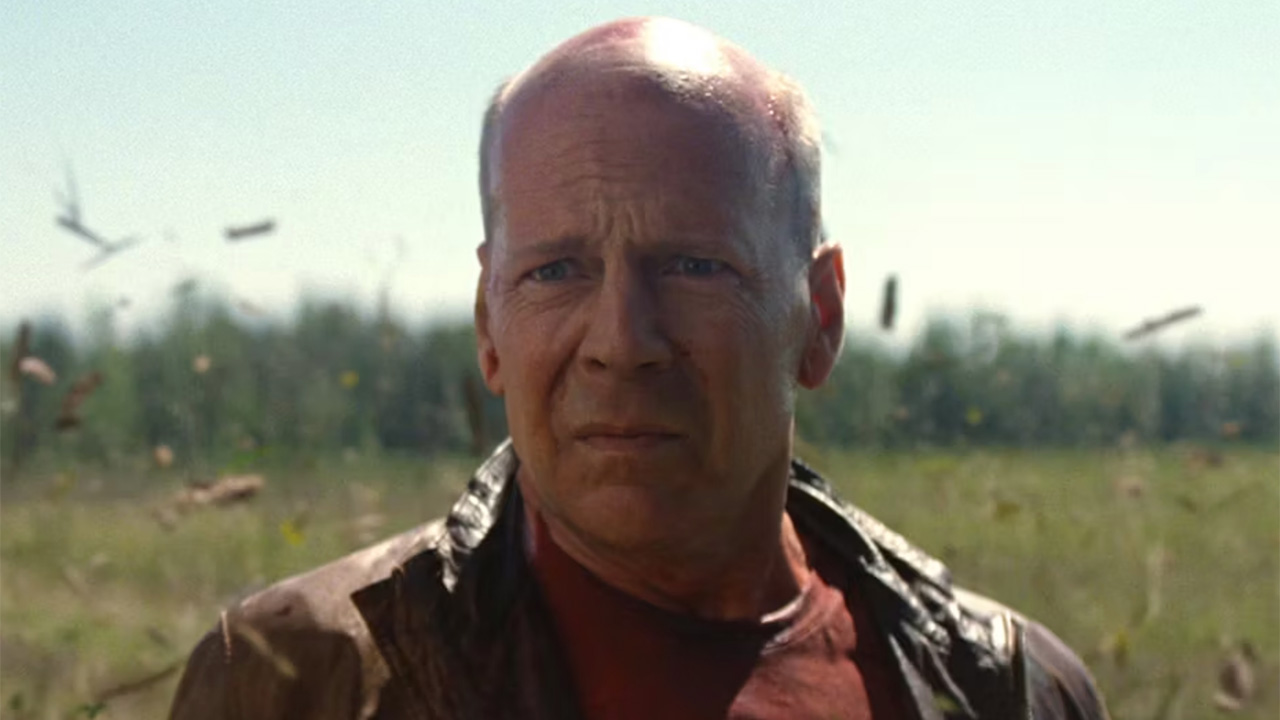Great Debate: What's The Best Kind Of Time Travel Story?

Much as we love Pitch Perfect, the big release of this weekend is undeniably Looper, the time travel thriller in which Joseph Gordon-Levitt plays a hit man in the future, who's suddenly assigned to assassinate… himself, only 30 years older and played by Bruce Willis. It's a twisty premise that only gets more complicated as it goes, as writer-director Rian Johnson filters the various elements of fictional time travel into a thriller that's entirely new-- and may be the beginning of a trend toward movies that take the typical rules of time travel and move beyond them.
But we're not here to spoil Looper for you-- not before you see it!-- so instead, Katey and Kristy got together to talk about time travel in general, and the two general methods of time travel you see in movies. There's time loops, in which everything is written and nothing you do can change the past (think Twelve Monkeys), and then alternate timelines, in which any change of the past sets history on to a brand new course (think Back to the Future). Is one of those methods better than the other? Is there a way to move beyond just those two? Check out our conversation below as we debate all the methods of time travel, and pick some of our favorite time travel stories.
KATEY: So I'll be honest-- as much as I love time travel movies and talking about time travel logic, the reason I really wanted to have this conversation is because your husband is apparently violently against one method of movie time travel: time loops. Can we start by figuring out what could possibly convince someone to hate something so commonly featured in movies?
KRISTY: Yeah. As soon as he sniffs out a time loop plot his enjoyment plummets. It's an argument we've gotten into a lot because I am a massive fan of 12 Monkeys, which also employs this device. But his issue with it is two fold.
First off, he insists that the hero's journey is rendered meaningless as soon as the time loop is revealed because whatever they have accomplished over the course of the movie is ultimately meaningless. And secondly, what this says about fate disturbs him because it essentially posits that we are powerless against our own destinies and free will is an illusion.
KATEY: The whole fate argument makes sense to me, but I think that's generally the point of time loop time travel movies-- "it is written" and all that. But the thing about the hero's journey, I think that's also the point of movies that do that, and more to the point, the realization that you're in the loop IS the journey.
KRISTY: Absolutely, but if you're going to a sci-fi film for an escape, this is a pretty bleak message.
Your Daily Blend of Entertainment News
KATEY: Sci-fi films are full of bleak messages though! And if you think about the time loop logic used by The Terminator, it's not always necessarily bleak. There's something kind of comforting about the idea that what happened, happened, and even if you go back thinking things will change, you learn you've already set up your own actions.
It's like learning that your grandparents knew exactly who you were going to be, and set about their lives to make sure you would come to exist.
KRISTY: But most time loop movies leave the protagonist in a horrible situation. And powerless to ever escape it. It's sort of a hell. Unless it's Peggy Sue Got Married, which seems more in line with your argument, where she accepts that her life will involve pain and heartbreak, but she accepts it because there's a lot of joy there too.
KATEY: I think what I like about the time loop theory is it's the one I came to second-- I had Back to the Future ingrained in my brain at a very early age, so the idea of spinning of into alternate realities as soon as you travel back into the past made perfect sense to me.
So when you get something like The Terminator, where if you travel back into the past you ALWAYS were there, it makes me think harder.
And without spoiling too much about Looper, which I know you haven't seen, it employs that too-- when you have an older version and a younger version of the same character at the same time, the younger one can get a scar, for example, that immediately appears on the older one.
KRISTY: Oooo.
KATEY: It seems like more of a challenge than Back to the Future, or even the new Star Trek, which reboots into an entire new reality.
KRISTY: Well, the very fact that the younger self can impact the older self that directly implies Looper steps out of the kind of time loop that is so indebted to the idea of fate being cemented. That little bit of information alone suggests that their fate is more fluid in the film. Though--again--I haven't seen it.
KATEY: Looper definitely plays with the time loop theory, though the most interesting stuff it does comes up in the end, so we can't talk about it. But the way that it tweaks the time loop suggests that maybe it's trying to come up with a new kind of time travel story to tell.
Do you feel like we've been kind of stuck between "rebooting into a new reality" and "time loop"? And maybe it's time to figure out a new way time travel could work? Or are those pretty much the only options.
KRISTY: Hmmmm. I am by no means an expert on movie time travel, but it seems to me their are those two models: one where the characters are stuck in an eternal unforgiving loop, and another where their actions cause an alternate reality like Back to the Future does. I tend to favor the latter, admittedly because Quantum Leap was very influential on my sci-fi tastes, but I'm intrigued by the possibility of a third option.
KATEY: I think the third option is kind of the one we all prefer, or at least the kind of time travel you'd like to have if you could do it-- you go back, you change a handful of things for the better, then you return to a world that's essentially the same. And obviously, if a movie is going to tackle it, they have to make that turn out not quite how you'd expect-- but most of the optimistic time travel movies, Back to the Future included, pretty much play off that idea.
KRISTY: So the impact we have on the future--and thereby fate and the world--is possible but limited. Not butterfly effect levels?
KATEY: Yeah-- but that's kind of the shiny-happy version of time travel, which doesn't make for nearly as much interesting sci-fi as the time loop or alternate realities. You can say 12 Monkeys is depressing, but you can't say it's not fascinating.
KRISTY: Oh, I love 12 Monkeys. To me, the tragedy that Bruce Willis's character can't do anything to change the future makes it bleak but glorious. But I understand not wanting to be reminded of such grim possibilities, especially when sci-fi can allow for so many exhilarating narratives. Plus, I respect that Terry Gilliam didn't deliver a typical Hollywood happy ending. Though that's another matter altogether.
KATEY: There's kind of a rug-pulling aspect to that use of a time loop-- it sets you up with the expectation that the past can be changed, only to reveal at the end that it can't really be. It's like a variation on the "it was all a dream" ending, but I think with way more existential impact. Because everyone harbors some kind of fantasy of time travel and fixing things that went wrong, and that's why time travel stories are so alluring-- and why they can pull us in only to break our hearts.
KRISTY: Exactly. I think ultimately time travel movies boil down to whether or not we have power over our own destinies, whether we can change our futures for the better like Marty McFly or we doomed to make the same mistakes over and over like James Cole. That's their primal allure. And to me as long as the filmmaker offers an engaging story with a richly realized world, I'm interested to see their argument about that debate.
KATEY: It's kind of amazing that there's so much art devoted to something that's not actually possible-- nobody makes movies about teleportation, at least not this many. Time travel has this specific draw for us that means we never get sick of seeing movies about it.
KRISTY: Absolutely, the possibilities are endless.
KATEY: So to wrap up this very rambling conversation, I recommend Looper for anyone who likes thinking hard about this stuff-- and also the Spanish thriller Timecrimes, if you are a skeptic about just how good a time loop movie can be.
How about you? Aside from Twelve Monkeys, of course.
KRISTY: I agree with your picks, and would add Triangle and Source Code as suggestions.
